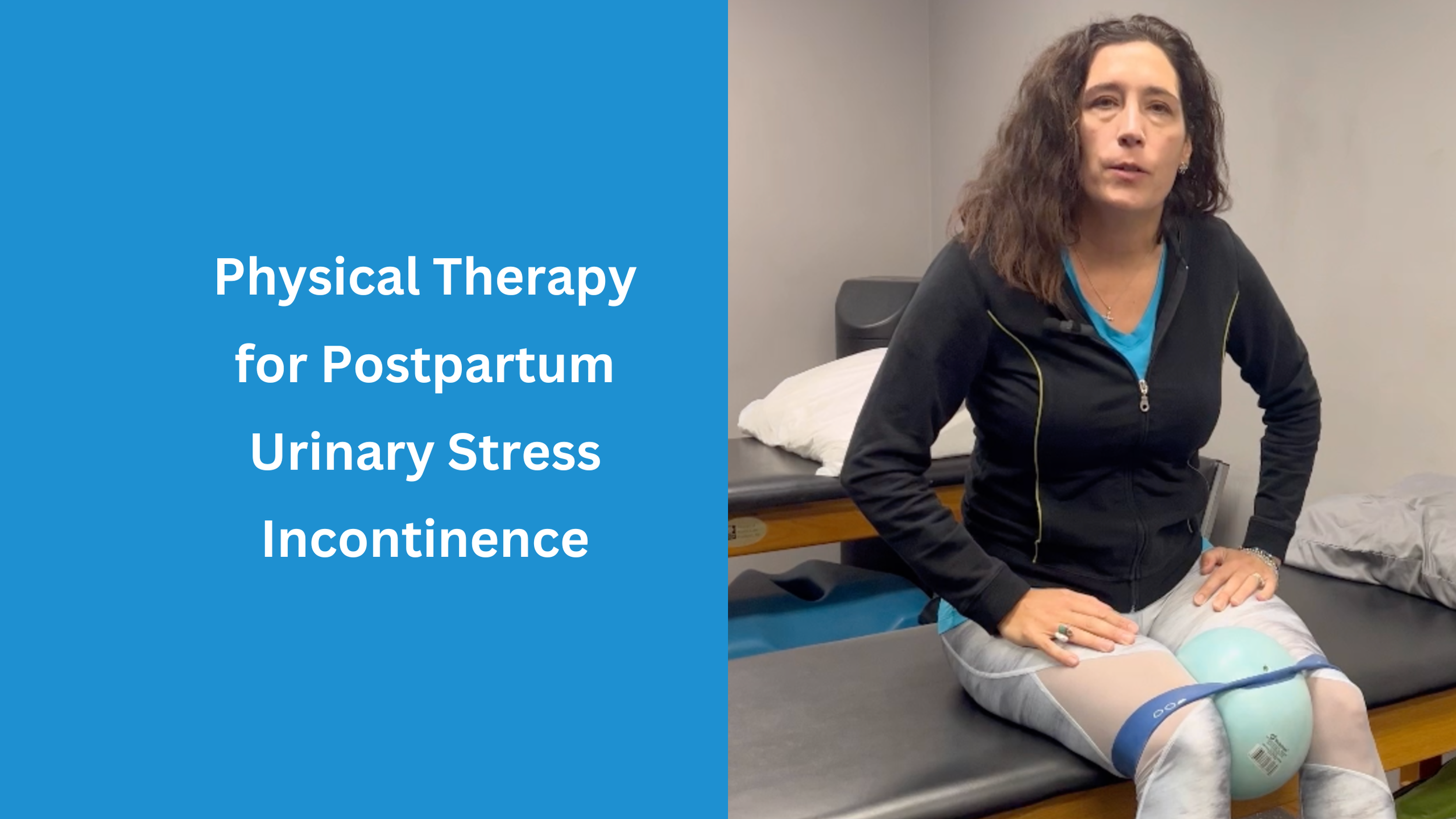Mangiarelli Rehabilitation Physical Therapy Blog
June 2023 Newsletter
Check out our June 2023 Newsletter, highlighting punching out Parkinson's WFMJ local news feature, physical therapy for postpartum urinary stress incontinence, walking after a total hip replacement & femoral nerve palsy, and three exercises to address shin splints.
Physical Therapy for Postpartum Urinary Stress Incontinence
Mangiarelli Rehabilitation physical therapist Jen demonstrates three exercises you can do for urinary stress incontinence on the blog! Postpartum urinary stress incontinence occurs when an individual experiences involuntary urine leakage that happens during activities like coughing, sneezing, laughing, squatting, or impact movements following pregnancy and childbirth, often due to pelvic floor dysfunction. Approximately 34% of women experience urinary incontinence postpartum. Physical therapy has been shown to be 80% effective at treating urinary stress incontinence. Pelvic floor physical therapy is used to treat urinary incontinence, a program of functional retraining to improve pelvic floor muscle strength, endurance, power, and relaxation.
Physical Therapy after a C-Section [Infographic]
A C-section is major abdominal surgery involving the delivery of a baby through horizontal incisions made in the abdomen or uterus along the pubic hairline. Women can experience significant pain at the c-section incision site due to scar tissue formation, limiting mobility in the abdominal area and contributing to pelvic pain and pelvic floor dysfunction. After a c-section, physical therapy can play a critical role in helping women recover, reducing incision site pain, normalizing pelvic floor muscle tone, improving core and back muscle strength, and optimizing women’s function and mobility.
Postpartum Bladder Health: How Physical Therapy Can Help
Physical therapy can treat postpartum bladder problems, such as urinary incontinence, by restoring pelvic floor muscle function after pregnancy and childbirth. Between 30 to 40% of women experience some degree of urinary incontinence postpartum, often silently suffering through stress incontinence in which urine may leak without your control when pressure is applied to the bladder when laughing, coughing, or exercising. Women can find relief from postpartum bladder issues by working with a skilled physical therapist.


![Physical Therapy after a C-Section [Infographic]](https://images.squarespace-cdn.com/content/v1/5e419cdc97af032560004b99/1684179845687-YIW6AAG3G4MSFF08KSB7/TW+C-Section+Infographic.png)












